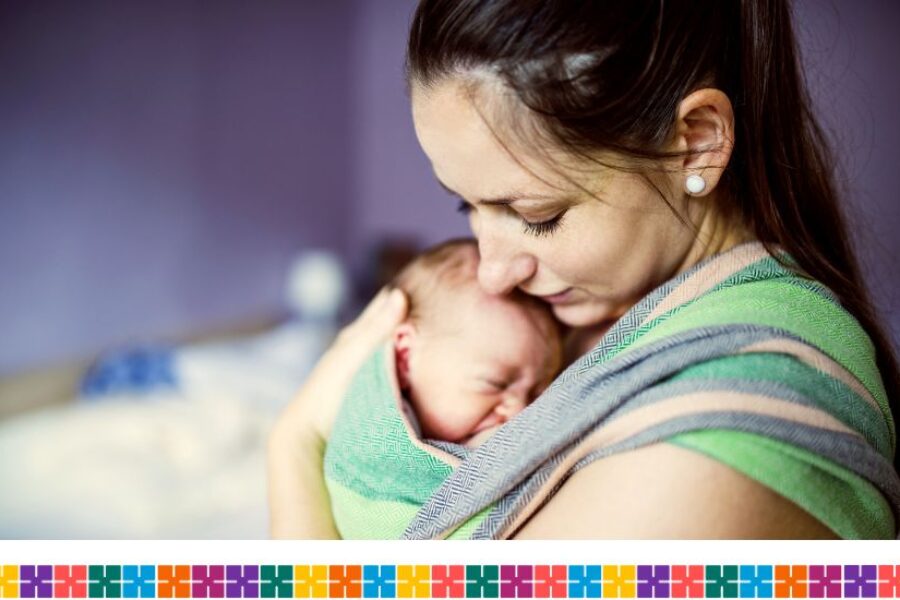
What is whooping cough?
Whooping cough, also known as pertussis, is an infection that affects the lungs and airways. It causes long bouts of coughing that are often worse at night. Whooping cough spreads very easily and can be dangerous. Young babies with whooping cough often become very unwell and most will be admitted to hospital. When whooping cough is particularly severe, sadly some children can die. There is lots of whooping cough around at the moment and cases are rising.
What is RSV?
Respiratory syncytial virus (RSV) is a common cause of coughs and colds. For most people it usually gets better by itself, but it can be serious for some babies under 6 months old and older adults. In babies, RSV is a common cause of a type of chest infection called bronchiolitis. This can cause breathing problems and may need to be treated in hospital. RSV can also cause a serious lung infection (pneumonia) in babies and older adults.
How can I protect my child from whooping cough and RSV?
There are vaccines that give excellent protection against whooping cough and RSV.
Pregnant women can help protect their babies by getting vaccinated during every pregnancy. When having both the whooping cough and the new RSV vaccination in pregnancy, a woman’s body produces antibodies to protect against whooping cough and RSV. This immunity passes to the unborn baby through the placenta giving them high levels of protection until they’re old enough to have their own whooping cough vaccination at 8 weeks old.
It is also important that once your baby is born they have their free routine vaccinations on time. Babies are offered whooping cough vaccination at 8, 12 and 16 weeks of age as part of their routine immunisations at your GP practice, and a pre-school booster is also offered to children three years later. However if your child is missing any of their vaccinations it is never too late to catch up, just ask your GP or practice nurse.
Find out more about the whooping cough vaccine for pregnant women Find out more about the whooping cough vaccine for babies and children Find out more about the RSV vaccine for pregnant womenI’m pregnant – how can I have the whooping cough vaccination?
It is best to have the vaccine between 16 and 32 weeks of pregnancy but you can have it anytime up to birth. Mums-to-be should contact their midwife or GP surgery if they have reached week 20 of their pregnancy and haven’t had the whooping cough vaccine.
You may be able to get the whooping cough vaccine during an antenatal appointment at the hospital. Please talk to your midwife about what your options are.
Vaccination nurses are available in antenatal clinics on:
Mondays, Wednesdays, Thursday and Fridays, 9am – 3pm at Lister Hospital, Stevenage
Tuesdays, 9am – 3pm at the New QEII Hospital, Welwyn Garden City
Every day, 8am – 5pm at Watford General Maternity Day Assessment Unit (walk-in service)
By appointment at Hemel Hempstead Antenatal Clinic (Call 01442 287780 to book)
I’m pregnant – how can I have the RSV vaccine?
You will receive a text message after you reach 28 weeks to book an appointment at a community clinic to have your RSV vaccination.
What are the symptoms of whooping cough?
The first symptoms of whooping cough are similar to a common cold, with a runny nose and a mild fever. After about a week or two, a frequent cough will develop with bouts of intense coughing lasting for several minutes, sometimes causing vomiting. Coughing is often worse at night. Coughing fits can cause some people to make a distinctive ‘whooping’ sound as they gasp for breath between coughs.
Ask for an urgent GP appointment or get help from NHS 111 if:
- your baby is under 6 months old and has symptoms of whooping cough
- you or your child have a very bad cough that is getting worse
- you’ve been in contact with someone with whooping cough and you’re pregnant
- you or your child has been in contact with someone with whooping cough and have a weakened immune system
Whooping cough can spread very easily. It’s best to call the GP before you go in. They might suggest talking over the phone. Check symptoms on 111 online (for children aged 5 and over) or call 111 for free at any time (for children under 5).
If you are worried that your child is seriously unwell, call 999.

Whooping cough stories
Whopping cough can be particularly dangerous for babies. Read about the devastating impact of the illness on one young family.